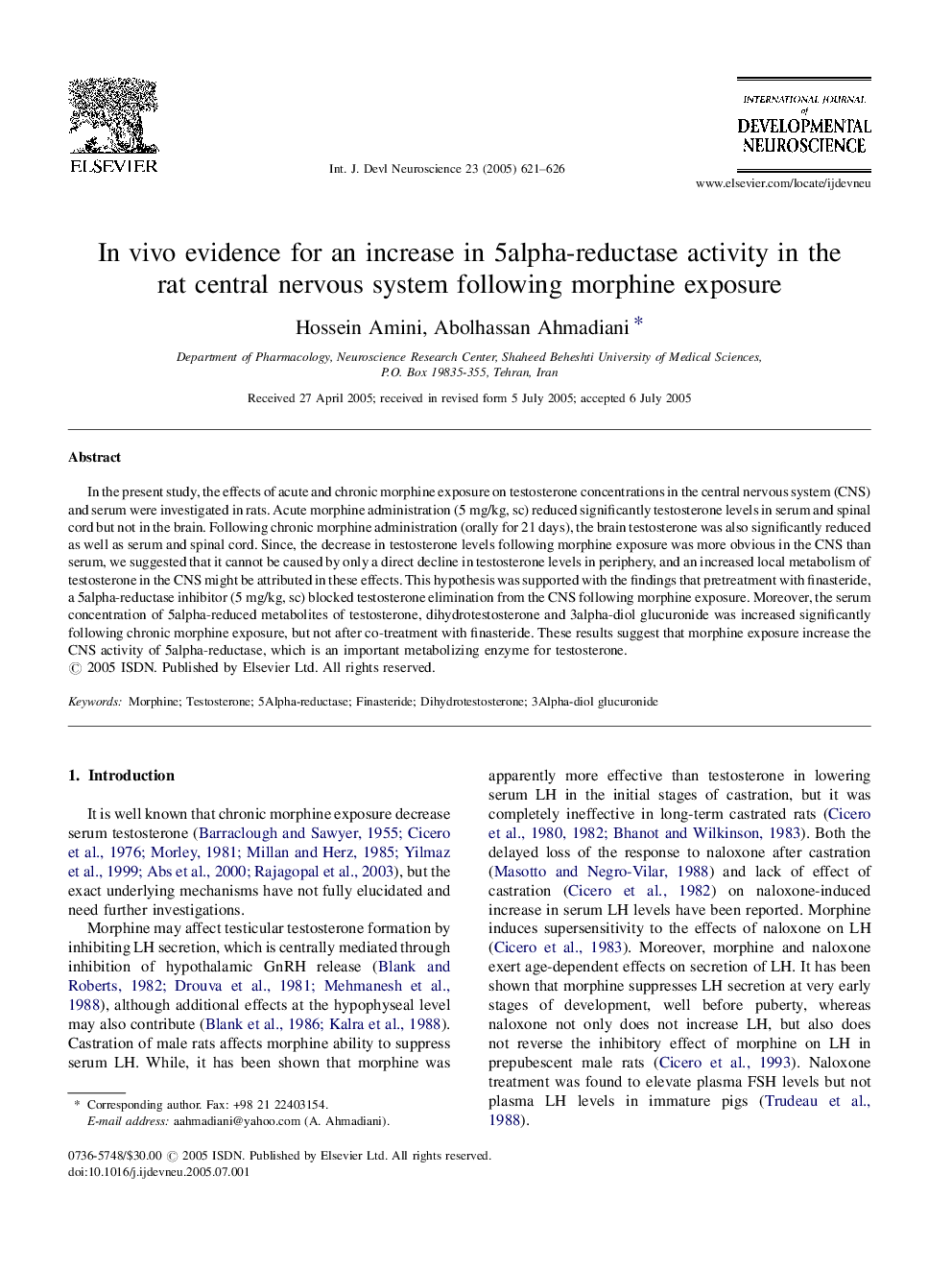| Article ID | Journal | Published Year | Pages | File Type |
|---|---|---|---|---|
| 9933558 | International Journal of Developmental Neuroscience | 2005 | 6 Pages |
Abstract
In the present study, the effects of acute and chronic morphine exposure on testosterone concentrations in the central nervous system (CNS) and serum were investigated in rats. Acute morphine administration (5Â mg/kg, sc) reduced significantly testosterone levels in serum and spinal cord but not in the brain. Following chronic morphine administration (orally for 21 days), the brain testosterone was also significantly reduced as well as serum and spinal cord. Since, the decrease in testosterone levels following morphine exposure was more obvious in the CNS than serum, we suggested that it cannot be caused by only a direct decline in testosterone levels in periphery, and an increased local metabolism of testosterone in the CNS might be attributed in these effects. This hypothesis was supported with the findings that pretreatment with finasteride, a 5alpha-reductase inhibitor (5Â mg/kg, sc) blocked testosterone elimination from the CNS following morphine exposure. Moreover, the serum concentration of 5alpha-reduced metabolites of testosterone, dihydrotestosterone and 3alpha-diol glucuronide was increased significantly following chronic morphine exposure, but not after co-treatment with finasteride. These results suggest that morphine exposure increase the CNS activity of 5alpha-reductase, which is an important metabolizing enzyme for testosterone.
Related Topics
Life Sciences
Biochemistry, Genetics and Molecular Biology
Developmental Biology
Authors
Hossein Amini, Abolhassan Ahmadiani,
